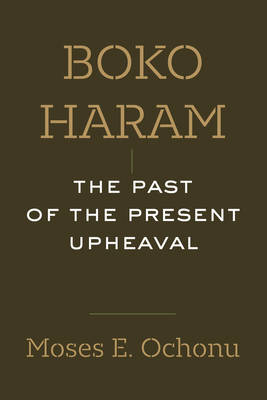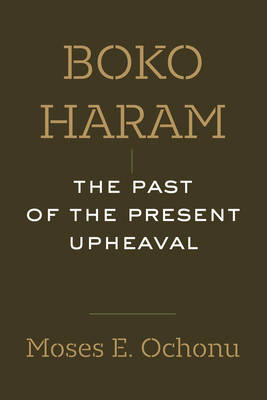
- Afhalen na 1 uur in een winkel met voorraad
- Gratis thuislevering in België vanaf € 30
- Ruim aanbod met 7 miljoen producten
- Afhalen na 1 uur in een winkel met voorraad
- Gratis thuislevering in België vanaf € 30
- Ruim aanbod met 7 miljoen producten
Zoeken
€ 161,45
+ 322 punten
Uitvoering
Omschrijving
For many observers, the predation of Boko Haram, unsparing and venal in its manifestation, is shocking, and it seems to lack a local historical frame of reference that would help make it understandable. For others, Boko Haram's self-declared jihad resonates within a long, local, contested historical memory of religious militancy. This book makes sense of these two seemingly contradictory perceptions. It explains Boko Haram's simultaneous connection to, and disconnection from, a complex history of religious dissidence and militancy in Northern Nigeria. It also answers the question of where the militants came from, what inspired and motivated them, and whether there is a local history of militant religious rebellion that could both illuminate and challenge Boko Haram's self-proclaimed jihad. Moses E. Ochonu analyzes the rise and evolution of the Boko Haram movement within and against the contentious religious pasts of Northern Nigeria.
Specificaties
Betrokkenen
- Auteur(s):
- Uitgeverij:
Inhoud
- Aantal bladzijden:
- 288
- Taal:
- Engels
Eigenschappen
- Productcode (EAN):
- 9780520417687
- Verschijningsdatum:
- 3/02/2026
- Uitvoering:
- Hardcover
- Formaat:
- Genaaid
- Afmetingen:
- 152 mm x 229 mm
- Gewicht:
- 557 g

Alleen bij Standaard Boekhandel
+ 322 punten op je klantenkaart van Standaard Boekhandel
Beoordelingen
We publiceren alleen reviews die voldoen aan de voorwaarden voor reviews. Bekijk onze voorwaarden voor reviews.







